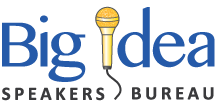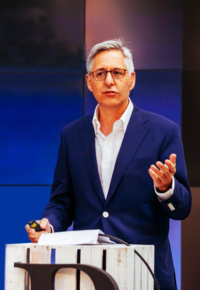Dan Lyons
There is probably no better (or funnier!) journalist, author and chronicler of our chaotic digital age than Dan Lyons. Dan’s 2016 bestseller “Disrupted: My Misadventures In The Start-up Bubble,” was a tragicomic romp through his “old guy” experiences working for a hip tech startup.
His follow up book to Disrupted was the perfect sequel. “Lab Rats: How Silicon Valley Made Work Miserable For The Rest of Us” is a witty and well researched examination of how Silicon Valley has completely changed the way we work, in ways no one ever could have imagined.
But Now, Dan has a new book out…:
STFU: The Power of Keeping Your Mouth Shut in an Endlessly Noisy World
Talk less, get more. STFU is all about inspiring people to speak with intention and engage with the world in ways that create an advantage. Buying a new car or house? Hoping to move up the ladder at work? Trying to win friends and influence people? Learn how to shut the f*ck up. By identifying five types of over-talkers (don’t worry, Dan’s a recovering one, too) and five exercises to cure our babbling ways, STFU is a prescriptive, informative book that empowers us to become better at nearly every facet of our daily lives—and, more important, to improve the lives of the people around us.
Dan has been featured in the New York Times, Wall Street Journal, The Economist, The Guardian, NPR and the BBC. In addition to authoring six books, Dan has consulted with tech companies, written for HBO’s hit comedy series, “Silicon Valley,” and led technology coverage for Newsweek.
His energetic, story-driven, takeaway-laden keynote presentations get rave reviews.
Videos
5G and AI: Promise and Peril
What is machine learning, how does it work, and how is it changing our lives? Is the combination of machine learning and 5G mobile telephony a danger or a blessing? Will new technologies lead to dangerous geopolitical upheaval or to marvelous new apps that make our lives immeasurably better? The answer is both. Tech journalist, author and research consultant Dan Lyons explains the promise and peril of two new technologies whose impact will be greater than the Internet itself, and why you should care.
LATEST BOOK:
Editorial Reviews
“Entertaining, illuminating, and inspiring! More than a book, it’s a public service announcement that we’d all do well to―well, STFU and listen to!”
―Sarah Knight, New York Times bestselling author of Calm the F*ck Down
“Read this book–your boss will thank you. Your spouse will thank you. And you’ll thank yourself! Good communication is measured not by the speaker, but by the listener. How can you know what’s going on in another person’s ear? Start by STFU! For most of us, that’s easier said than done. Dan Lyons will explain how to do it, and why it will improve your relationships at work and at home.”
―Kim Scott, New York Times bestselling author of Radical Candor
“STFU convinced me that, by keeping my big mouth shut, I will be happier and more productive and so will everyone else in my life. Dan Lyons’ ridiculously funny gem taught me how to shut up, pay fierce attention to others, stifle my ‘manalogues’ and so many more antidotes for my talkaholic tendencies. My only problem is that, after reading STFU, I can’t stop talking about how much I love this book!”
―Robert I. Sutton, organizational psychologist, Stanford Professor, and New York Times bestselling author of seven books including The No Asshole Rule
“Lyons cuts through the noise even as he critiques it. Timely, clever, and important. Need I say more? (Probably not).”
―David Litt, former speechwriter for President Barack Obama and New York Times bestselling author of Thanks, Obama
“Want to help with those loudmouthed jerks, the ones polluting our media and our minds of late? Want to avoid being one yourself? STFU teaches us what we all need to learn: how to listen, pause and speak. How to communicate with intention, and power. The book opens your mind by closing your mouth. I could go on, but I’ll shut up now.”
―Aaron James, New York Times bestselling author of Assholes: A Theory










